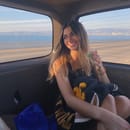“Can this be recycled?” This question is posed almost every day in my apartment full of environmentally conscious UC Berkeley students. We all want to do what is best for the environment and sort our waste properly, but there is a lot of confusion associated with recycling. Some people have the mentality that you should “recycle whatever you think can be recycled and it will get sorted out,” while others say that “if you recycle the wrong items it can ruin whole batches.” Every city has different recycling protocols and standards, so if you feel overwhelmed and confused, here is a beginner’s guide to recycling in Berkeley:
#1: What to recycle
Here is a general list of items that should be recycled in your blue curbside bin:
-Any plastic bottle (lids are OK if attached)
-Any clean rigid plastic containers (this includes milk cartons, yogurt tubs, peanut butter jars, detergent, red Solo cups, food trays, etc.)
-Planter pots (remove all dirt)
-Cardboard (break down before disposal, waxed or greasy cardboard should be placed in compost)
-Cereal box (plastic lining inside cannot be recycled, collect and drop off at local grocery store)
-Glass jars (metal lids can be recycled, plastic lids can go to the landfill)
-Junk mail, phone books, envelopes, newspapers, and magazines (padded envelopes cannot be recycled)
-Metal cans
-Paper bags (if bag is greasy or food-stained, put in compost)
-Aluminum foil, cans, and containers
-CDs and DVDs
-Paper and plastic egg cartons (styrofoam can go in landfill)
-Glass bottles (try to keep the caps and lids attached to the container)
-Wrapping paper
-Wire

#2: What not to recycle
Here is a general list of items that are often mistaken as recyclable:
-Small plastic items (examples: utensils, hot cup lids, loose caps, condiment cups)
-Plastic bags
-Plastic films (like plastic wrap, clear windows in envelopes and packaging, spice and condiment packets)
-Compostable plastics
-Styrofoam
-Non-rigid food packaging (snack bags)
-Greasy or food-contaminated items
-Small/broken pieces of glass
-Batteries and fluorescent light bulbs (these are considered household hazardous waste and should be recycled at the City of Berkeley’s Transfer Station)

#3: Cleaning
Many recycling items need to be cleaned before they are thrown out. Aluminum cans are one of the exceptions which don’t need to be cleaned, but most do. Plastic, glass, and all other containers need to be rinsed, cleaned, and dried. Uncleaned items and leftover water can contaminate the entire stock, as mold and decay can spread to clean waste during the transportation process.
#4: Size limit
Items need to fit inside the bin and be no larger than a five gallon bucket. Large items can block the conveyor belt and cause sorting problems. Large items can instead be dropped off at Berkeley Recycling.
#5: What do the triangles mean?
The triangles on the bottom of packaging are not the best indicators of an item’s ability to be recycled. Instead, the triangles tell you if the item is made from recycled materials. However, they can be helpful in determining which types of plastic to avoid while shopping. Triangles with types 1, 2, and 5 are generally more recyclable than other types.
For visuals, alternatives, special cases, and a more in-depth description, visit the Ecology Center or City of Berkeley websites.



